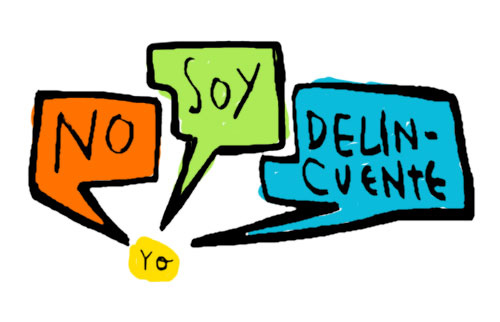
In 2008, Lopez Licor, a 67-year-old self-employed worker, started receiving visits from inspectors and police officers due to anonymous complaints about illegal rentals of rooms in his home. He did not have time for anything when police officials began searching the house, which is a property of one of his family members, detaining various tenants inside.
They detained him, despite the fact that he is not the owner of the home being rented. After 72 hours in a dungeon, he was released on bail and accused under the crime of “prostitution and human trafficking”. One month later, he was cited by the police. He was surprised when they informed him that he only had to pay a fine of 400 Cuban pesos for carrying out illegal economic activities.
The authorities decided to use the power granted to them by the law to administratively punish the offender instead of remitting the case before the court. He did not understand when they told him they would apply “number 149 for enrichment by illegal means”. He also did not worry, for all his papers were up to date.
He believed in his luck and in the protection of his saints for not having to confront justice. Certainly, a relative did rent out rooms without having the required license, which is a crime under the Penal Code. However, he never carried out any acts of prostitution in this rented area, as defined by the crime of “prostitution and human trafficking”.
He was far from imagining that the authorities were preparing an even graver punishment not only for him, but also for his family: the confiscation of all their goods and earnings — a measure which he was not able to defend himself against. Ingenuous, he never thought that by accepting the proposition of the police authorities he would accept the consequences of a crime he never committed.
He also did not imagine that there were various norms which passed sentences, and by different means: the Penal Code and Decree Laws 149 and 232. The latter laws apply the administrative confiscation of goods due to unlawful enrichment, drugs, prostitution and human trafficking, illegal rentals, etc. No one informed him of the risks. Much less did they give him the possibility of choosing.
He ignored the fact that a court has the obligation to respect his rights and to offer him guarantees, which were also ignored by the administrative process they were imposing on him. In order to sentence him, they needed proofs which would destroy his state of innocence and which would represent his individual actions, without endangering his family.
The administrative process of confiscation, according to what is established in Decree Law 149, derived from his “guilt” and now the weight of having to find evidence which would prove otherwise was on his shoulders. Despite the fact that the authorities were informed about this during mid-2008, the rule had a retrospective effect, and now they were demanding that he turn in all he and his family had acquired during the past 10 years.
On the 23rd of July of 2009, the Minister of Finances and Prices, Lina Olinda Pedraza Rodriguez, dictated a Resolution which declared the confiscation of the assets belonging to Teofilo Roberto Lopez Licor and his relatives Pompilio Lopez Licor (his brother), Teofila Elsa Avila Gutierrez (his wife), and Antonio Lopez Avila (their son).
The decision was appealed. They wore out all legal possibilities. They sent out complaints and petitions to all the authorities they could find. In fact, they even tried to sue the head of Finances and Prices before the court, but their accusation never advanced. All efforts were in vain. The resolution passed by the Minister could not be overturned through the judicial process.
If Teofilo Roberto could turn back time, he would have rejected the generosity of the police authorities and the indulgence of the law when they decided not to send his case to court. “I never thought for a moment that by accepting such an offer, it would automatically cancel my rights as a citizen,” he said, “But I also knew I couldn’t refuse it…whoever created the law, also created the trap,” he concluded.
Translated by Raul G.
March 7 2011
